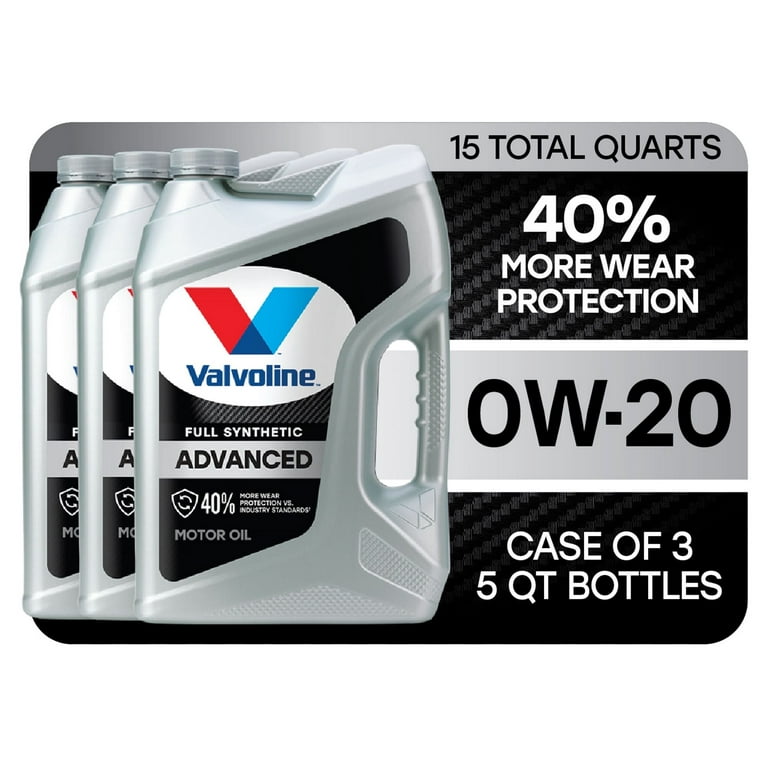When it comes to choosing the right engine oil for your vehicle, there are several factors to consider. One common question that arises is whether it is safe to use 0W 20 oil instead of 5W 30. In this article, we will explore the differences between these two oil grades and provide some insights into making the best choice for your engine.
Credit: www.quora.com
Understanding Oil Grades
Before we delve into the specific differences between 0W 20 and 5W 30 oils, let’s first understand what these numbers represent. The first number, before the ‘W’ (which stands for winter), indicates the oil’s viscosity at low temperatures. The lower the number, the better the oil will flow in colder weather. The second number represents the oil’s viscosity at higher temperatures, typically the operating temperature of your engine.
Thicker vs. Thinner Oil
In general, a thicker oil, such as 5W 30, provides better protection for your engine at higher temperatures and under heavy loads. It forms a stronger barrier between moving parts, reducing friction and wear. Thicker oil is often recommended for older engines or vehicles that are regularly subjected to harsh conditions.
On the other hand, a thinner oil like 0W 20 offers improved fuel economy and performs well in colder weather. It has better flow properties at low temperatures, ensuring easier engine starts, particularly in freezing conditions. Thinner oil is typically recommended for newer engines or vehicles that require better cold-start performance.
While both 0W 20 and 5W 30 oils meet the viscosity requirements for many vehicles, it is essential to consult your owner’s manual or consult with a qualified mechanic to determine the recommended oil grade for your specific make and model.
What the Experts Say
According to Pennzoil, using a thinner oil than recommended by your owner’s manual can result in potential engine damage due to decreased lubrication and increased friction. Conversely, using a thicker oil can result in reduced fuel economy and potential engine damage due to increased resistance and inadequate flow properties.
Online forums and communities also suggest that sticking to the recommended oil grade is crucial to ensure optimal engine performance and longevity. While some individuals may argue that using a 0W 20 oil instead of 5W 30 can offer benefits, it is important to note that these opinions should be taken with caution.
Ultimately, the decision to use 0W 20 instead of 5W 30 should be based on the recommendations outlined in your owner’s manual. The manufacturer has likely performed extensive testing and research to determine the ideal oil grade for your engine.

Credit: www.walmart.com
Frequently Asked Questions For Can You Use 0w 20 Instead Of 5w 30 2
What Will Happen If I Use 0w20 Instead Of 5w30?
Using 0w20 instead of 5w30 can have negative consequences. It is important to follow the recommendations in your owner’s manual. Using a thinner oil can lead to inadequate lubrication and potential engine damage. Stick to the recommended vis-grade for optimal performance and fuel economy.
Can I Mix 0w-20 Oil With 5w-30 Oil?
No, it is not recommended to mix 0W-20 oil with 5W-30 oil. Mixing different viscosities can affect the performance of the oil and potentially harm your engine. Always follow the recommendations in your owner’s manual for the correct oil viscosity to use.
Is 0w20 Good For Hot Weather?
No, 0w20 is not ideal for hot weather. It is thinner and may not provide sufficient protection for engine components when temperatures rise. Refer to your owner’s manual for the recommended oil viscosity for hot weather conditions. Using the correct oil grade ensures optimal performance and protection for your vehicle.
Can 5w-20 Be Used Instead Of 5w-30?
No, it is not recommended to use 5W-20 instead of 5W-30 if your owner’s manual specifies a thicker oil. Using a thinner or thicker oil than recommended may result in decreased performance and potential engine damage. Stick to the oil grade specified by your vehicle’s manufacturer for optimal performance.
Can I Use 0w 20 Instead Of 5w 30?
No, it is not recommended to use a thinner oil (0W 20) if your owner’s manual calls for a thicker oil (5W 30). Stick to the recommended oil viscosity to ensure optimal performance and avoid any potential damage to your engine.
Conclusion
Choosing the correct engine oil is vital for maintaining the performance and longevity of your vehicle’s engine. While both 0W 20 and 5W 30 oils have their advantages, it is essential to follow the guidelines provided by your vehicle’s manufacturer. Using the recommended oil grade will ensure optimal lubrication and protect your engine, ultimately prolonging its lifespan.




